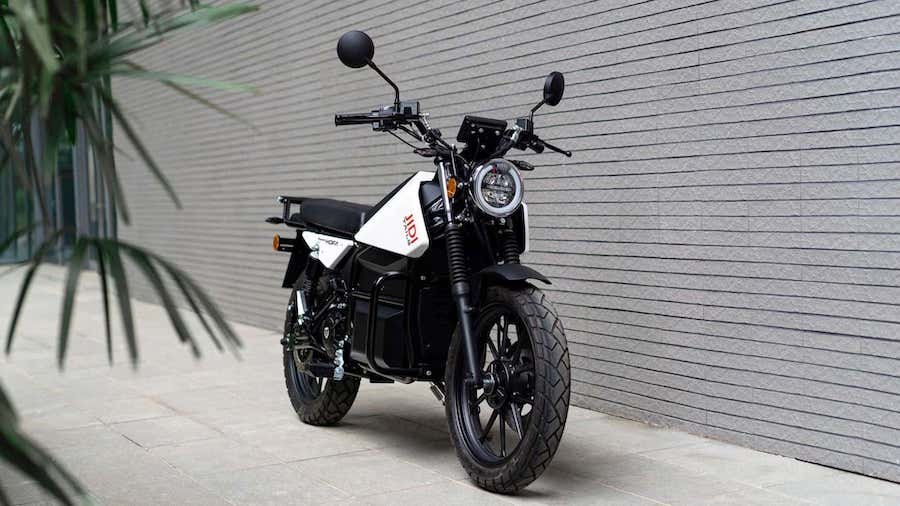New Jidi Electric Motorcycle Charges Up Mobility In Africa

Electric mobility innovations such as e-scooters, e-bikes, and electric motorcycles have transformed the way people move in all parts of the globe. And while these types of vehicles are seen mostly as toys in the US market, broadening our perspective quickly reveals that there's a lot going on in the development of lightweight, two-wheeled machines.
Take, for example, Ghanian firm Kofa which just partnered with Chinese e-mobility company TAILG, to release this: the Jidi, a compact and robust electric motorcycle designed specifically to handle the rigors and harsh climate in Africa. It looks awesome.
“Designed in Ghana. Built for Africa,” is the companys' tagline for the Jidi, and it promises impressive performance, range, and safety, all while being a utility-focused machine.
When it comes to technology, the Jidi is powered by Kofa’s Kore2 battery. With a combined range of 100 kilometers (62 miles), these batteries are designed to be quickly swapped out in the company’s Swap & Go stations which, according to the company, takes just 30 seconds. And from our understanding, Kofa’s Swap & Go tech works similarly as Gogoro’s battery-swapping infrastructure for its Smartscooters.
On the performance side of the spectrum, the TAILG Jidi Powered By Kofa (that’s what they’re calling it on their official website), is powered by a 72V mid-mounted motor propelling the two-wheeler to a top speed of 85 KPH (about 53 miles per hour). Given these performance figures, it seems as though the Jidi has similar performance as a 125cc gas-powered motorbike or scooter. Furthermore, the Jidi boasts adjustable drive modes, allowing riders to optimize performance depending on the terrain and their preferences.
According to Kofa, the Jidi reduces running costs by up to 30 percent (presumably when compared to a regular gas-powered motorbike), and significantly reduces carbon emissions. Meanwhile, from a styling perspective, the Jidi is clearly rugged, with dual-sport tires, an exposed steel frame, and its simple suspension system which consists of a standard telescopic fork with gaiters and twin rear shocks.
Other practical features include a long bench saddle that can be used for either carrying a pillion or hauling cargo, as well as USB charging ports for added convenience, LED lights all around, and a CBS (combined braking system) for added safety. Last but not least, the Jidi was engineered for longevity and ease of maintenance, allowing users to carry out basic maintenance with basic tools, which I wish was more prevalent in today's motorcycles.
As of this writing, Kofa has yet to announce pricing for the Jidi electric motorcycle, and instead asks visitors to its website to contact them for pricing information. The company does, however, claim substantial cost savings “of up to 30 percent” when compared to gasoline-powered alternatives, so chances are the Jidi is priced pretty competitively.
Given the never-ending need for mobility in Africa and other parts of the world, innovations like the Jidi stand to challenge the norm, making electric mobility more accessible to a wider audience.


Nouvelles connexes


